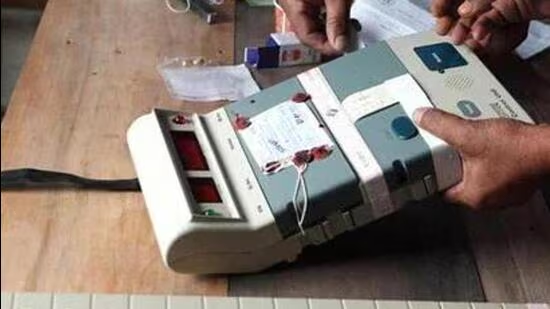15 october 2024 : On Tuesday, the Supreme Court declined to halt the ongoing panchayat elections in Punjab, stating that interrupting the polling after it had commenced would lead to “chaos.” A bench led by Chief Justice of India Dhananjaya Y. Chandrachud stressed the need for judicial restraint in matters related to elections, refusing to issue any interim order to stop the polling that began at 8 AM.
The bench remarked, “Once the polling has started, how can we stay the election? The high court likely recognized the seriousness of its prior order and vacated the stay.” The justices, including JB Pardiwala and Manoj Misra, highlighted the importance of caution when considering stays on elections, warning of the unintended consequences of such actions. They pointed out the ramifications if a stay were sought on a parliamentary election after voting had begun.
The court was addressing a strong plea from a group of lawyers seeking to stay the Punjab polling, arguing that the Punjab and Haryana High Court had lifted its previous restraint on conducting the panchayat elections on October 14. The lawyers, representing multiple petitioners, claimed that the high court had allowed the elections to proceed despite a stay that had been in effect since October 9.
The bench indicated that appeals against the high court order would be heard in due course, but no interim stay could be granted. The Supreme Court’s decision reflects a broader judicial principle emphasizing that its role is to interpret and assess the law rather than to interfere in legislative matters. Judicial restraint in electoral processes has been a consistent theme in Indian jurisprudence, with the Supreme Court historically allowing elections to proceed once they are underway to safeguard the democratic process.
Polling in Punjab commenced across 19,110 booths, with 1,187 designated as hyper-sensitive. Voters are electing leaders for 13,225 gram panchayats, with 9,398 positions for sarpanch available. Notably, 3,798 candidates for sarpanch have already been elected unopposed. The State Election Commission reported a substantial voter base, with 1.33 crore registered voters for the gram panchayat elections. In total, 25,588 candidates are contesting for sarpanch positions, while 80,598 are running for panch posts.
On Monday, the high court dismissed over 800 petitions challenging the nomination process, allowing the elections to proceed. The core issue raised by the petitioners was that the nomination process was flawed, with many nomination papers being rejected without proper justification. Some petitioners claimed that only one candidate was allowed to stand, resulting in unopposed elections that deprived voters of a fair choice. They argued that this lack of transparency violated principles of natural justice and proposed that voters should have the option to select “None of the Above” (NOTA) to express their dissatisfaction with the candidates.
Gurminder Singh, the advocate general representing the Punjab government, countered these arguments by citing Article 243-O of the Constitution, which prohibits judicial interference in the election process once it has begun. Singh stated that the only legal recourse for addressing election-related grievances is through election petitions after the elections are completed. He emphasized the importance of this constitutional provision in maintaining the electoral process and referenced numerous Supreme Court rulings that have reiterated the need for courts to avoid intervening once elections are in motion. Singh warned that stopping an election mid-process could set a dangerous precedent, potentially leading to similar disruptions in future elections, including those for higher offices.
Following a lengthy hearing on Monday, a division bench comprising justices Sureshwar Thakur and Sudeepti Sharma granted permission for the state to proceed with the elections.

